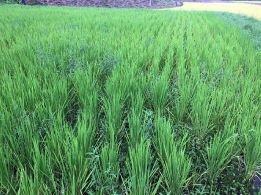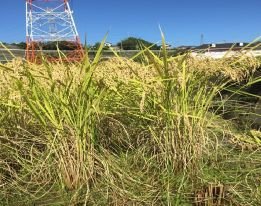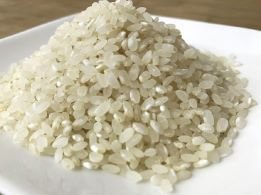
The Challenge of Organic Farming in Japan
The common belief even in Japan is that organic farming is not sustainable. There will not be enough food for 9 billion people but we think things differently. Having said that, organic farming requires farmers to get their hands dirty without much help from machines. Considering the decreasing birth rate with aging society, Japan might be the hardest place for organic farming.
To maximize production efficiency, we need industrialized fertilizer and pesticides. That is against organic farming but how can it be done without harmful chemicals? In this section, we will share how it is done in Japan and how it can be replicated elsewhere.
For the nutrition and antioxidant properties of food grown in Happy Micro organic farming method, we recommend you to check out Grow High Antioxidant Foods. That article shows you a drastic improvement of spinach, cabbage, chili pepper and other foods with less care.
What is Happy Micro?
Happy Micro is an inorganic product made of 100% natural resource such as solidified magma and volcanic ash. It is a magical catalyst to stimulte microorganisms existed in soil and water to naturally transform the environment. Happy Micro is not a checmical nor biotechnology product and it is safe.
Happy Micro in Organic Farming
First of all, our soil and microorganisms living in the soil do not like pesticides and/or chemical fertilizers. If you add those, it’s no longer organic farming and sustainable. In fact, Happy Micro will NOT be able to make microorganisms happy. Second, all the examples you see in Grow High Antioxidant Foods were only given water from sowing to harvesting.
That (we think) should be the main reason why plants grown with Happy Micro had much less nitrite and higher antioxidants. Even though strawberries were slightly less sweet (10%), other indicators were much better than traditional farming.
Organic farming in Japan can be done with less effort and resources which means less spending. That is also friendly for the aging population and the environment. Let’s see another example with Happy Micro organic farming method.
Real World Example
We compared three different methods to see the growth of wheat.
- Carbo Farming
- Happy Micro (without fertilizer & pesticide)
- Natural (no fertilizer & pesticide)
This is the height comparison 3 months after seeding.

22 days after the first comparison

10 days after the second comparison

The following photo is a rice farmer in Japan and they harvest 1.42 times more with Happy Micro than their historical average. No pesticides nor chemical fertilizers. They did weeding once a day by hand and that was pretty much it.
From Good To Great
To be clear, we are not suggesting that you should not use fertilizers to make higher quality (high in sweetness and nutrients) products. As long as no chemical is poured into the soil, it is good for the soil, good for the plants and good for animals and people. Professional organic farmers know what is the best for the soil and plants. By combining their expertise with Happy Micro, they and nature can benefit more.
The harm of chemical fertilizer and pesticide for humans is obvious. The numerous negative health effects include neurological, reproductive, and many other effects. Organizations and scientists have shown enough proof to justify it.
Takeaways
“You are what you eat” so when we take good care of microbes/microorganisms, they take care of soil and soil makes organic and healthy agriculture products. As a result, we eat well-taken care of food to make our gut microbiome happy so it is all about Happy Microorganisms.
For the actual results of Happy Micro without using any fertilizer/pesticide, please check out Grow High Antioxidant Foods. It compares antioxidant properties and nutrients of conventional farming (national average in Japan) and Happy Micro.
This less human work, more microorganisms effort organic farming has gone out of Japan. Check out Land Greening to see how Happy Micro transformed 1500 hectare uninhabitable land into a massive farm.
The organic farming often brings unpleasant smell because of using animal’s excrement or compost. If you think a Odorless Organic Farming is crazy, highly recommend to take a look.




